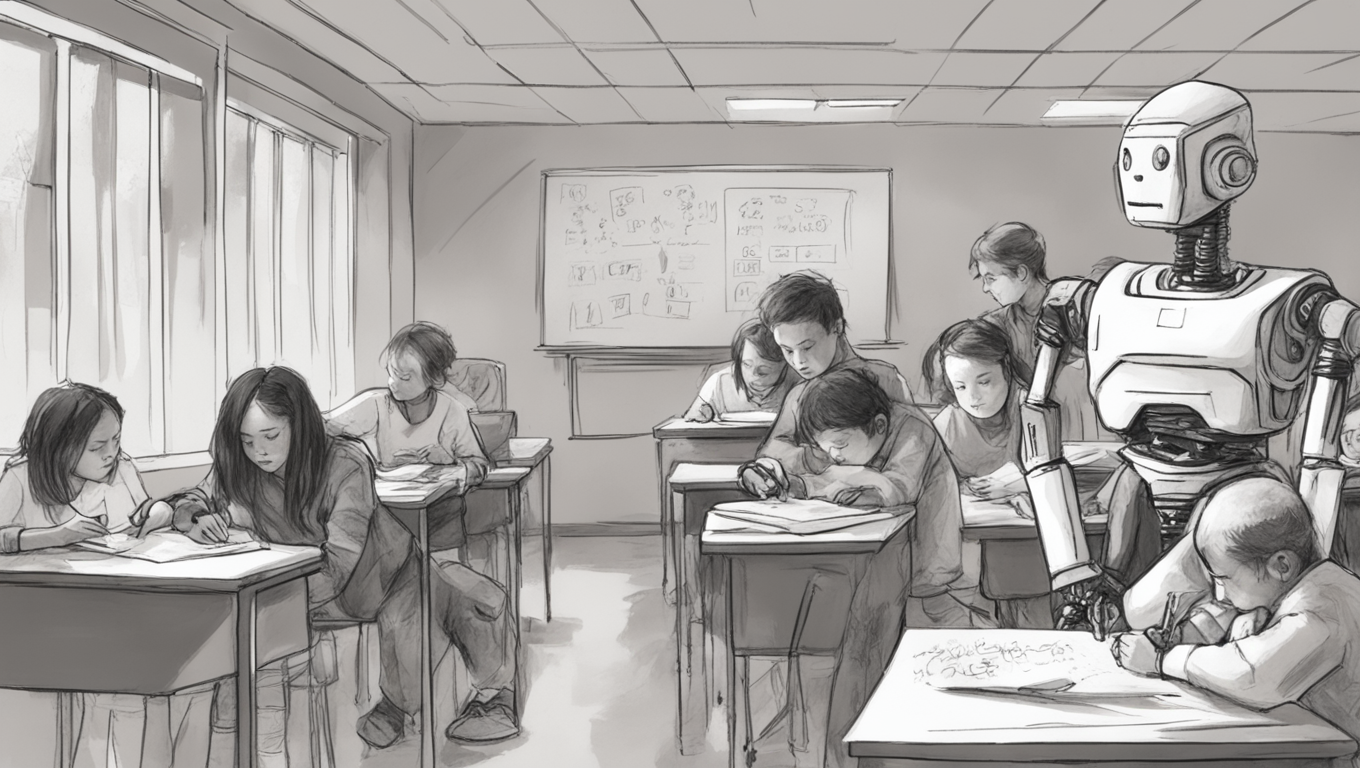In a groundbreaking study conducted by the University of Reading, it has been revealed that exam submissions generated by artificial intelligence (AI) can not only go undetected but also outperform the work of university students. This discovery has raised concerns about the integrity of academic institutions and the potential for students to pass off AI-generated work as their own.
The study, led by Peter Scarfe, an associate professor at Reading’s School of Psychology and Clinical Language Sciences, used the latest AI technology, including ChatGPT and GPT-4, to generate answers to exam questions. These answers were then submitted on behalf of 33 fictional students, without the knowledge of the exam markers.
The astonishing results showed that in 94% of cases, AI-generated answers went undetected by the experienced markers. Not only that, but on average, the AI-generated answers received higher grades than real student submissions. Prof Scarfe noted that AI performed particularly well in the first and second years of study, but encountered more challenges in the final year modules.
These findings serve as a wake-up call for educational institutions, as AI tools like ChatGPT become more advanced and widespread. It raises questions about the effectiveness of AI detectors and the ability of even experienced markers to identify AI-generated responses.
Prof Scarfe emphasized the need for educational institutions to constantly adapt and update their guidance as generative AI evolves. He believes that rather than reverting back to in-person exams, which he considers a step backward, universities should focus on embracing the “new normal” of AI to enhance education. Many institutions have already embraced the ethical use of AI in teaching and assessments, and the sector as a whole must continue to evolve to maintain the integrity of educational assessments.
Professor Etienne Roesch, a co-author of the study, stressed the importance of establishing clear guidelines for students on how to use and acknowledge the role of AI in their work. This responsibility extends beyond academia, as the broader use of AI in society requires trust and transparency. Roesch emphasized the need for a commitment to academic and research integrity to prevent a crisis of trust in our information ecosystem.
As the use of AI continues to evolve and become more sophisticated, it is crucial for the education sector to stay ahead of the curve. By embracing AI technology and understanding its impact on educational assessments, universities can ensure that they are prepared for the future and can maintain the integrity of their academic programs. The era of AI-powered education is upon us, and it is up to educators to navigate these new waters with integrity and innovation.





Use the share button below if you liked it.